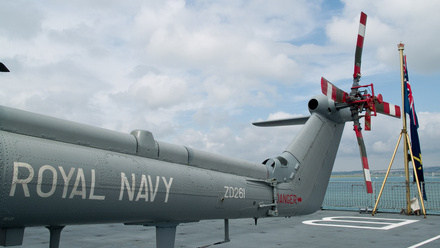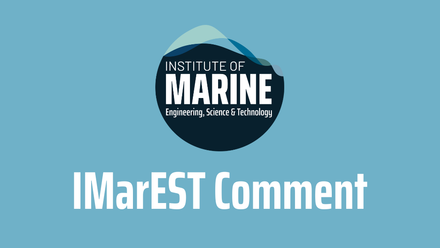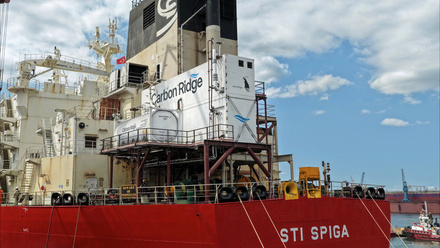IMO postpones net zero programme in a blow to shipping decarbonisation
The Net-Zero Framework would have meant shipping is the sole industry with binding emissions reduction plans, but a one-year delay was agreed.
October’s IMO Extraordinary Marine Environment Protection Committee (MEPC) was the talk of the shipping town. The main item on the agenda: formal adoption of the Net-Zero Framework (NZF) to reduce greenhouse gas emissions from ships, the content of which was agreed at the April MEPC meeting.
The postponement of the NZF decision means there is now greater uncertainty over how and when to invest in new vessels and fuels. The Framework would have made shipping the first and, so far, the only industry with binding emissions reductions – a huge feather in the maritime cap, and an even bigger win for the climate.
In the run up to the pivotal meeting, the clatter grew ever louder that the US would derail the agreement. In a joint statement released in mid-August, US Secretary of State Marco Rubio, Secretary of Commerce Howard Lutnick, Secretary of Energy Chris Wright and Secretary of Transportation Sean Duffy threatened to retaliate against countries that confirmed their support to the NZF at October’s meeting. Meanwhile, President Donald Trump railed against the deal on social media.
Their threat was justified as a form of protection for US citizens and businesses against an agreement that “is effectively a global carbon tax on Americans” and which would “conveniently benefit China”.
However, beneath the wider consensus on the need for decarbonisation and given the outcome of the meeting, significant anxieties persist on the next iteration of the Framework — particularly concerning market distortion and the transparent handling of the prospective net-zero fund.
In an intimate panel discussion at London International Shipping Week (LISW) last month [September 2025], IMO secretary general Arsenio Dominguez and Michael Parker, chairman of Citi's Global Shipping, Logistics and Offshore business, discussed some of the challenges of the NZF.
Inequalities debated
Parker opened the discussion by pressing the IMO Secretary General on potential structural inequalities within the proposed framework. He noted that “several industry voices have expressed concern that the lack of a comprehensive impact assessment on the Framework risks putting tramp shipping at a big disadvantage to liner shipping and similar sectors given issues around fuel availability and bunker infrastructure”.
Parker questioned whether this was a “fair criticism” and, crucially, if the IMO was prepared to move quickly to adjust the framework if distortions became obvious before the earliest planned review in 2030.
Dominguez defended the rigor of the IMO’s regulatory process, stressing that the adoption agreement was the result of exhaustive analysis. “We, if my memory serves me right, evaluated and assessed 20 different scenarios from the proposals that we had on the table before landing on the compromise approach,” Dominguez said. However, he readily acknowledged that concerns were widespread, listing issues ranging from the challenges of infrastructure and fuel availability to differing sector-specific impacts.
He continued that the framework specifically addressed those anxieties by incorporating review clauses and included additional impact assessments to take into account the impact on food security. This mechanism allows the organisation to monitor the sector’s evolution, particularly the “development, scaling and scalability of the different fuels that will allow us to decarbonise the sector”.
Dominguez was also unequivocal about the financial reality the industry must face. Decarbonisation, he warned, “Has a cost. I'll keep repeating that. It's not for free.” While shipping contributes approximately 3% of global emissions, he sees immediate action as necessary to retain industry leadership and pre-empt future challenges from other transport modes. The economic measures are therefore designed not just as a punitive cost, but as an investment engine, aimed at rewarding the early movers, as well as those that “focus immediately in using net zero and zero emission fuels or technologies”.
Critically, these funds are also earmarked for essential infrastructure, seafarer training, research, and development, with a specific focus on mitigating any negative impact on trade for Small Island Developing States and Least Developed Countries.
Financial mechanism concerns
The conversation at LISW also covered the transparency of the financial mechanisms of the framework — specifically the widely speculated net-zero fund that will accumulate revenues from the economic measures. Parker raised a sharp point of industry scepticism, asking if Dominguez was “confident” that the structure and distribution mechanisms will be transparent enough to ensure that real investment in the industry's decarbonisation takes place to “prevent governments simply seeing this as a general revenue pot to share out for other reasons?”
In response, Dominguez acknowledged that concerns over fund misuse were not new and had been “aired and discussed throughout the whole development of these measures”. He said that while he could not provide specific revenue distribution answers ahead of the regulatory adoption, the intention was clear: “I don't want people to perceive this as IMO just becoming a bank. That's not the intention.
“This is clearly to support the transition in the decarbonisation of the sector, and we will be fully transparent.”
To guarantee integrity, Dominguez confirmed that the oversight framework is robust. He highlighted that a board will oversee the work of administrations that the organisation will take on board. “It's all fully audited.”
He concluded with a call for faith in the organisation’s enhanced governance, asserting that the IMO has demonstrated a commitment to transparency and communication. “We are all going in this process together, but keep the trust on the organisation, because we have demonstrated enhanced transparency, communications and engagement – these are the goals that I'll continue to uphold for IMO,” he said.
Tell us what you think about this article by joining the discussion on IMarEST Connect.
Image: ship traffic on the river Elbe, Germany. Credit: Shutterstock.





